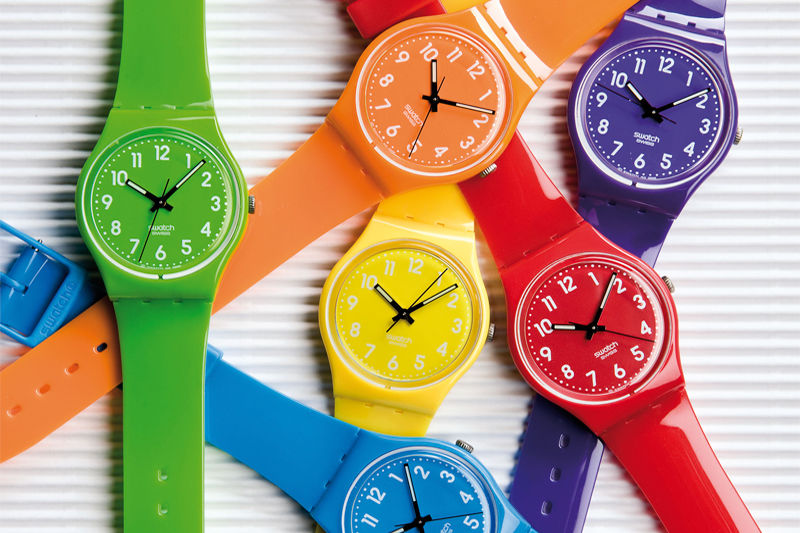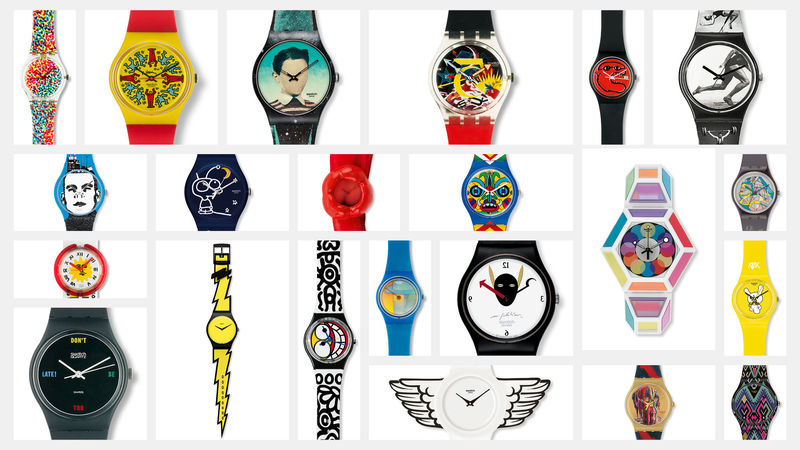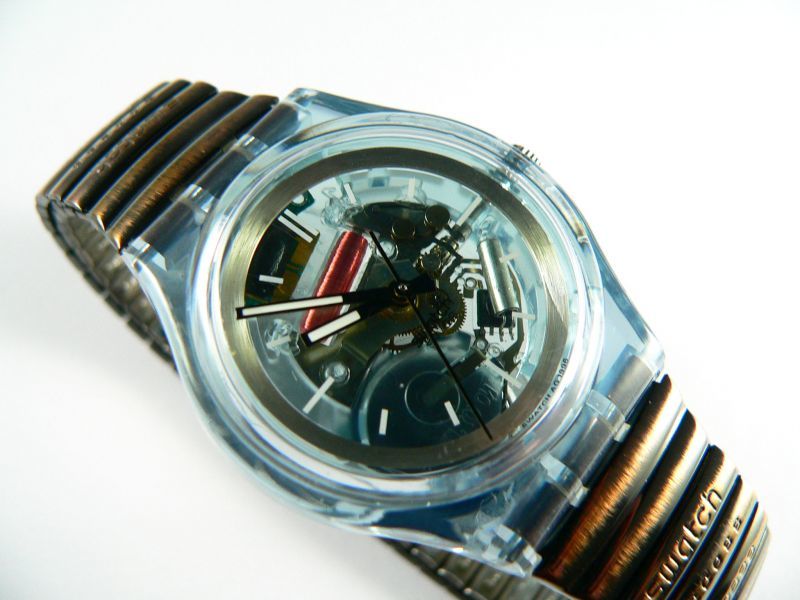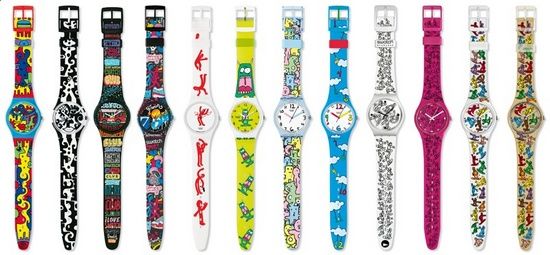Smart Swatch
Remember Swatch? The must-have colourful plastic watches of the 80s and 90s? They are back in the news, with their new plan to produce their own smartwatch operating system.

Swatch plans to develop its own operating system as the Swiss watchmaker seeks to combine smart technology with the country’s expertise in making timepieces and miniaturisation, chief executive Nick Hayek has said.
Mr Hayek added that he wanted to avoid relying on Apple’s iOS and Google’s Android and provide a "Swiss" alternative offering stronger data protection and ultra-low energy consumption.
This new plan has caused all sorts of consternation around the Internet, but I was disposed to ignore it - until now. I just received this week's Monday Note, by the usually reliable Jean-Louis Gassée.
M. Gassée makes some initially good points about the complexity of operating systems, the immaturity of the smartwatch market, and the short timescales involved. Swatch intends to ship actual products by the end of 2018, which is barely any time at all when it comes to developing and shipping an entirely new physical product at mass-market scale. However, I do wonder whether he is falling into the same trap that he accuses Hayek and Swatch of falling into.
… in 2013, Hayek fils publicly pooh-poohed smart watches:
"Personally, I don’t believe it’s the next revolution… Replacing an iPhone with an interactive terminal on your wrist is difficult. You can’t have an immense display."
I tend to agree with Hayek, as it happens; the "terminal on the wrist" is pretty much a side show. The one stand-out use case for smart watches1 right now appears to be sensors and fitness. If that's not compelling, then there is very little else to attract you to smartwatches, even if you are a committed technophile like me. For myself, after wearing a Jawbone Up! for a year or two, I determined that I was not making use of the data that were gathered. The activity co-processor in my iPhone is ample for my limited needs.

What Is A Smartwatch?
The key point, however, is that Swatch have not announced an actual smart watch, but rather "an ecosystem for connected objects". M. Gassée even calls out some previous IoT form within CSEM, Swatch's partner in this venture, which recently produced the world's smallest Bluetooth chip.
The case against the wisdom of the Swatch project - the complexity of OS development and maintenance, the need for a developer ecosystem, and so on - assumes that Swatch are contemplating a direct rival for Apple's watchOS and Google Gear. What if that's not what's going on at all?
What if Swatch is going back to its roots, and making something simple and undemanding, but with the potential to be ubiquitous? The ecosystem for a smartwatch is now widespread: everyone has a smartphone, NFC is everywhere, from payment terminals to subway turnstiles. What if Swatch just intends to piggyback on that by embedding a few small and cheap sensors in its watches, without even having a screen at all?

Now that would be a Swatch move. In fact, it's such a Swatch move that they've done it before, with their Snow Pass line:
Its ski watch stores ski pass information and has an antenna that communicates with a scanner at the fast-track ski lift entrance. One swipe of the wrist and you're through.
That description sounds a lot like ApplePay to me - or really any NFC system. Add some pretty basic sensors, and you've got 80% of the smartwatch functionality that people actually use for 20% of the price.
Seen through this lens, the focus on privacy and security makes sense. It has been said that "the S in IoT stands for 'security'", and we could certainly all use an IoT player that focuses on that missing S. If the sensors themselves are small and simple enough, they would not need frequent updates and patches, as there would be nothing to exploit. The companion smartphone app would be the brains of the operation and gateway to all the data gathered, and could be updated as frequently as necessary, without needing to touch the sensors on the watch.

So What Is Swatch Really Up To?
As to why Swatch would even be interested in entering into such a project, remember that these days Swatch is part of a group that sprawls across 70 different brands, most far more up-scale (albeit less profitable) than lowly Swatch with its plastic watches. Think Omega, Breguet, Glashütte, Longines, or Blancpain. The major threat to those kinds of watches is not any single other watch; most watch lovers own several different mechanical watches, and choose one or another to wear for each day, activity, or occasion. In my own small way, I own three mechanical watches (and two quartz), for instance.
For a while now, and accelerating since the release of the iPhone, the competition for watches was - no watch at all. Why bother to wear a watch, the thinking went, when your smartphone can tell the time much more accurately? But now, insidiously, the competition is a watch again - but it is the last watch its owners will ever wear. Once you start really using an Apple Watch, you don't want to take it off, lest you miss out on all those activities being measured. Circles will go unfilled if you wear your Rolex to dinner.
But what if every watch you buy, at least from The Swatch Group, gives you the same measurements and can maintain continuity through the app on your phone? What if all of your watches can also let you on the subway, pay for your groceries, and so on? Other players such as Breitling and Montblanc have also been looking into this, but I think Swatch has a better chance, if only because they start from scale.
Now we are back to the comfortable (and profitable) status quo ante for the Swiss watch industry, in which watch aficionados own several different watches which they mix and match, but with each one part of the same connected experience.
Analogies are dangerous things. The last few years have conditioned us to watch out for the "PC guys are not just going to figure this out"-type statements from incumbents about to be disrupted. What if this time, the arrow points the other way? What if Swatch has finally figured out a way for the traditional watch industry to fight back against the ugly, unclassy interloper?
-
In a further sign of the fact that this is still a developing market, even auto-correct appears to get confused between "smartwatch" and "smart watch". ↩